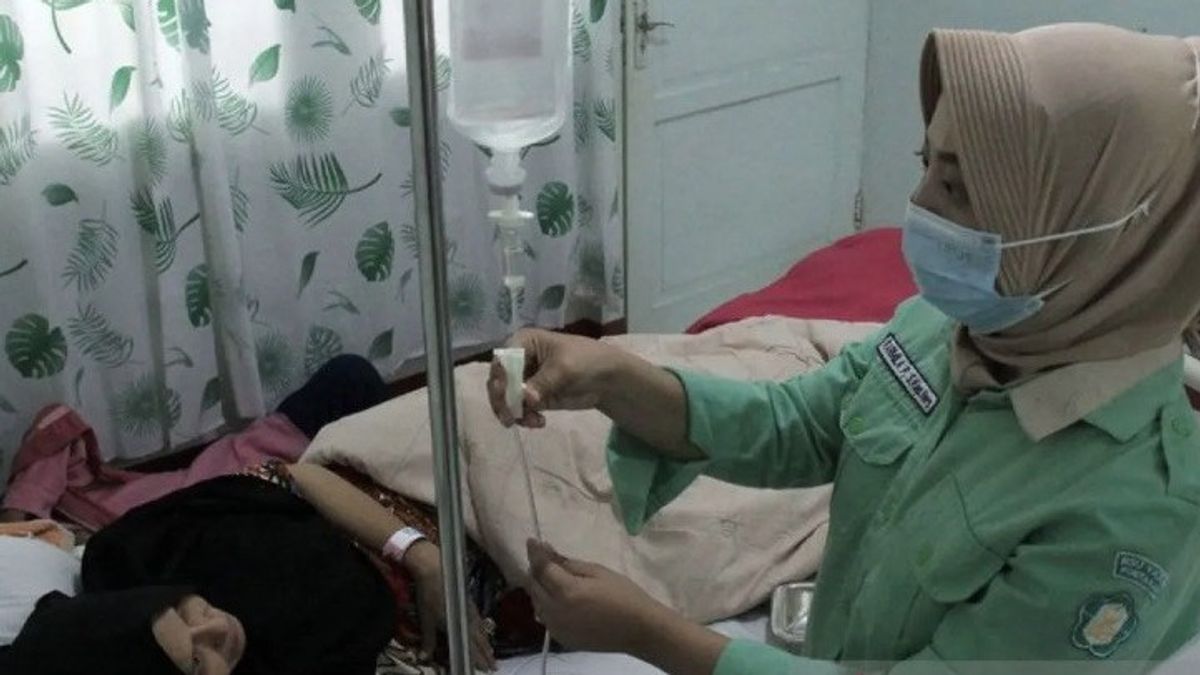JAKARTA The policy of implementing the Standard Inpatient Class (KRIS) for BPJS Health patients has become a polemic. Instead of improving the quality of service, the implementation of the KRIS is actually considered to have the potential to cause justice for patients.
The implementation of KRIS in all hospitals in collaboration with BPJS Kesehatan is an order from President Joko Widodo (Jokowi) as stated in Presidential Regulation Number 59 of 2024 concerning the Third Amendment to Presidential Regulation Number 82 of 2018 concerning Health Insurance.
The KRIS system will be implemented at the latest on June 30, 2025. During this stage, class 1, 2, and 3 services are still running, while regarding the contributions and technical implementation of KRIS will be regulated again in Permenkes.
Quoting the Presidential Decree, KRIS is the minimum standard of hospitalization services that must be accepted by participants of the National Health Insurance program.
Spokesperson for the Ministry of Health (Kemenkes) Mohammad Syahril said the implementation of the KRIS was aimed at improving the quality of class III services for BPJS Health patients.
He said Presidential Decree Number 59 of 2024 concerning Health Insurance regulates the application of 12 standard criteria for hospitalization services for National Health Insurance (JKN) patients, including building quality, lighting, indoor bathrooms, bed barriers, room temperature, and oxygen installations.
One of the public highlights is the maximum standard for the provision of treatment beds, a maximum of four beds. Thus, BPJS Kesehatan class 1, 2, and 3 users will get a maximum of four beds inpatient rooms. Whereas previously there were differences in treatment rooms in each class.
"This policy related to the KRIS system is considered confusing, counterproductive, and has the potential to harm not only participants, but also hospitals and even BPJS Health managers," said BPJS Watch Advocacy Coordinator Timboel Siregar.
"What is the urgency of changing class to KRIS?" said Timboel. "Reading the Presidential Regulation itself, about the KRIS alone is incomplete, confusing the public."
He highlighted several reasons. One of them is the contribution of independent participants which has the potential to become one or single tariff because the treatment room is one. This means that there is a possibility that the grades 1 and 2 contributions will decrease, while grades 3 will be 'forced' to rise.
For class 1 and 2 users, decreasing due prices is almost certainly not a problem, but has the potential to reduce due income for BPJS Kesehatan. On the other hand, for class 3 which will later experience an increase in due price has the potential to increase participants who are in arrears.
"This means that 3rd grade participants will find it increasingly difficult to pay dues and become in arrears of dues which as a result do not get JKN services. Currently, there are still a lot of those whose contributions are Rp. 35 thousand who are in arrears, by increasing dues, more and more people will be in arrears," said Timboel.
For information, class 1 BPJS Kesehatan so far has paid a fee of Rp. 150,000 per person per month and class 2 Rp. 100,000 per month. Meanwhile, class 2 only needs to spend Rp. 35 thousand because it receives a subsidy of Rp. 7,000 from the government from the supposed to pay Rp. 42 thousand.
In addition to the potential decline in contribution income, the KRIS scheme also threatens the satisfaction of BPJS Health participants, especially for private and government wage recipients who have been getting grades 1 and 2 with two or three beds per treatment room.
Referring to the narrative discussed by the government, one room has a maximum of four beds. So, what is the basis? " said Timboel.
"The implementation of the KRIS, it is indeed the spirit to provide more services, we agree. But if later there are counterproductive things, disappointing the community, such as one four-bed room, this must be considered by the government, so that the quality is really improved," he continued.
SEE ALSO:
Health policy observer Hermawan Saputra also spoke up about the KRIS system. According to him, this system will be burdensome for private hospitals. Because it is not managed directly by the government, private hospitals do not always have sufficient financing. Thus, they need large investments to make standard adjustments from various aspects.
"For private hospitals, it is not only a matter of building investment, but the consequences of adding investment will also have an impact on human resources, improving quality, areatraining, and there will also be a revolution against performance," explained Hermawan.
"In the end, it affects all existing business processes," he said.
The English, Chinese, Japanese, Arabic, and French versions are automatically generated by the AI. So there may still be inaccuracies in translating, please always see Indonesian as our main language. (system supported by DigitalSiber.id)














